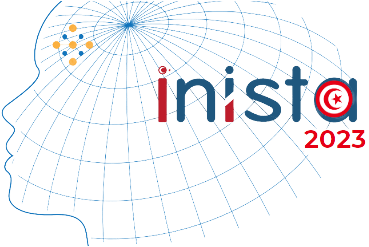DSSBH 2023: Data Science at the Service of Biology and Healthcare
Medical and biology data are among the most data analyzed and treated. Biological and medical experimentations in vitro are very expensive, because they are characterized by their complexities and big volumes and results are very sensitive about the health of human. Thus, the exploitation of new technologies and computer science models becomes a necessity, firstly to reduce the cost of experimentations and secondly to help experts (doctors and biologists) to make the good decision. The virus Covid’19 is a good lesson and motivation for humanities to continuously develop technologies and computer science programs. In fact, predict diseases or the severity level of virus before any diagnostics become a real challenge for our society and for many researchers from various disciplines (Biology, Medicine, Statistics, Computer Science, etc.).
Today, there are many processes used for processing data in order to deal with many real-world issues, such as classification, prediction, regression and clustering. The main goal of these processes is to discover knowledge from data in order to make a precise decision. Also, in this kind of problems, the tolerance of errors rate is very low, because the decision concerns the health of human. In addition, it is a challenge for researchers to propose their optimal works in short time. Since many decades, researchers try to win dangerous diseases, while not neglecting the fact that research in this regard is developing from day to day.
The main goal of the DSSBH2023 special session is to present the recent researches, and their results, on data sciences techniques for the analysis of biology and healthcare data. This session provides a more focused, in-depth venue for presentations, discussions and interactions of a very important subject.
The scope of the DSSBH2023 includes, but is not limited to, the following topics:
- Data science models for biological sequence analysis
- Bioinformatics
- Computational Biology
- Health informatics
- Evolutionary and swarm optimization techniques for biology and healthcare applications
- Hybridization of exact and heuristic methods in biology and healthcare
- Computer Vision applied in biology and healthcare
- Cancer diagnosis using machine and deep learning techniques
- Explainable AI in biology and healthcare
- Medical image interpretable AI
- Machine learning for prediction in biology and healthcare
- Dealing with unbalanced classification and regression data in biology and healthcare
Manuscripts should conform to the IEEE template/format as indicated in the Information for Authors section of the Article Submission Guidelines. All manuscripts to be considered for publication must be submitted by the deadline through the Easychair, while selecting the Track “Data Science at the Service of Biology and Healthcare” from the option-box.
Accepted papers will appear in the conference proceedings, and be indexed in the Web of Science Core Collection databases. The authors of selected best papers will be invited to extend their contributions for special issues.
- Paper submission deadline: June 15th, 2023
- Paper acceptance notification: July 20th, 2023
- Camera-ready Submission & Registration: July 30th, 2023
Prof. Walid Barhoumi, LIMTIC Laboratory, University of Tunis El Manar
ENICarthage, University of Carthage, Tunisia
E-mail: [email protected]
Dr. Ramzi Guesmi, LETI Laboratory, University of Sfax
ISLAIB, University of Jendouba, Tunisia
E-mail: [email protected]
Dr. Faouzi Mhamdi, LaTICE Laboratory, University of Tunis
ISLAIB, University of Jendouba, Tunisia
E-mail: [email protected]
- Ezzeddine Zagrouba, LIMTIC Laboratory, University of Tunis-El Manar, Tunisia
- Ladjel Billatrech, ISAE-ENSMA, France
- Mourad Elloumi, FESM, University of Tunis-El Manar, Tunisia
- Amr Ahmed, Edge Hill University, UK
- Walid Barhoumi, LIMTIC Laboratory, University of Tunis-El Manar, Tunisia
- Lotfi Chaari, INP Toulouse, IRIT, France
- Naoures Khlifa, ISTM Tunis, University of Tunis El Manar, Tunisia
- Davide Verzotto, CASD, Stato Maggiore della Difesa, Rome, Italia
- Ramzi Farhat, ENSIT, University of Tunis, Tunisia
- Ramzi Guesmi, ISLAIB, University of Jendouba, Tunisia
- Khaoula ElBedoui, LIMTIC Laboratory, University of Tunis-El Manar, Tunisia
- Faouzi Mhamdi, ISLAIB, University of Jendouba, Tunisia
- Haythem Ghazouani, LIMTIC Laboratory, University of Tunis-El Manar, Tunisia
- Naoufel Machta, ISLAIB, University of Jendouba, Tunisia
- Mohamed Sahbi Bahroun, LIMTIC Laboratory, University of Tunis-El Manar, Tunisia


